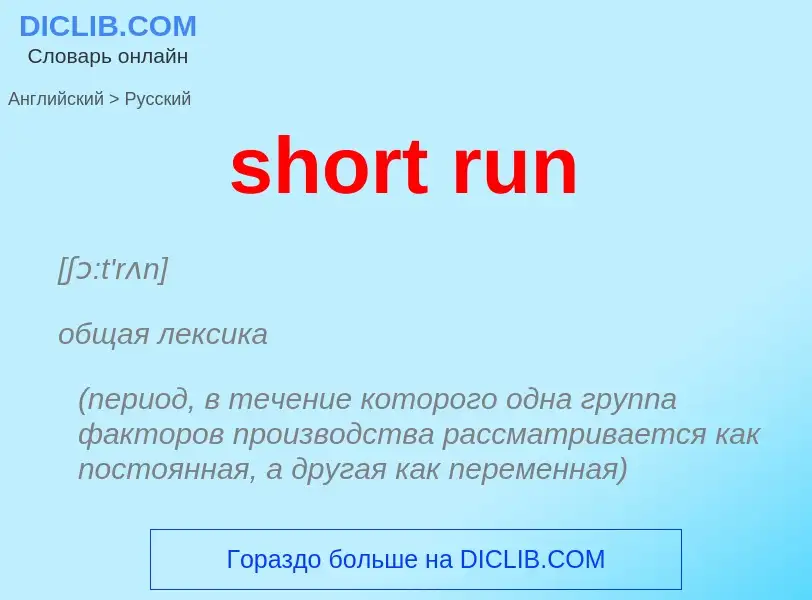Traducción y análisis de palabras por inteligencia artificial ChatGPT
En esta página puede obtener un análisis detallado de una palabra o frase, producido utilizando la mejor tecnología de inteligencia artificial hasta la fecha:
- cómo se usa la palabra
- frecuencia de uso
- se utiliza con más frecuencia en el habla oral o escrita
- opciones de traducción
- ejemplos de uso (varias frases con traducción)
- etimología
short run - traducción al Inglés
[ʃɔ:t'rʌn]
общая лексика
(период, в течение которого одна группа факторов производства рассматривается как постоянная, а другая как переменная)
короткий промежуток времени
экономика
короткий [краткосрочный] период
нефтегазовая промышленность
короткий рейс (при колонковом бурении в осложнённых условиях)
подъём инструмента на несколько свечей (для кондиционирования газированного бурового раствора)
синоним
2) небольшая партия (изделий)
3) мелкосерийное производство
4) короткий период времени
Definición
Wikipedia
In economics, the long-run is a theoretical concept in which all markets are in equilibrium, and all prices and quantities have fully adjusted and are in equilibrium. The long-run contrasts with the short-run, in which there are some constraints and markets are not fully in equilibrium. More specifically, in microeconomics there are no fixed factors of production in the long-run, and there is enough time for adjustment so that there are no constraints preventing changing the output level by changing the capital stock or by entering or leaving an industry. This contrasts with the short-run, where some factors are variable (dependent on the quantity produced) and others are fixed (paid once), constraining entry or exit from an industry. In macroeconomics, the long-run is the period when the general price level, contractual wage rates, and expectations adjust fully to the state of the economy, in contrast to the short-run when these variables may not fully adjust.

